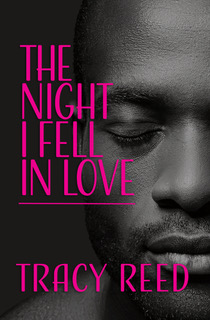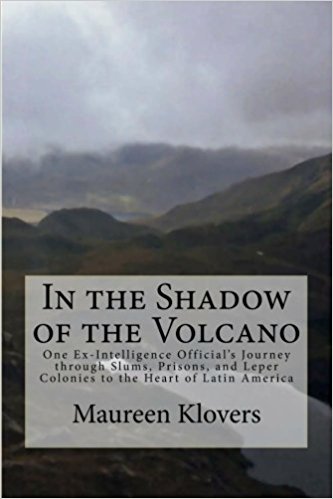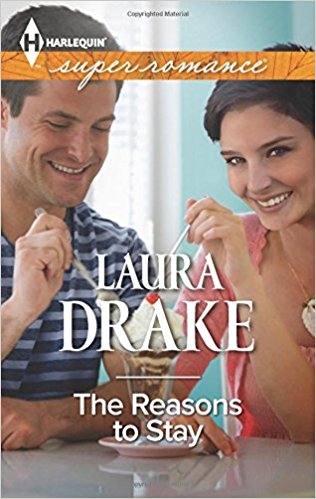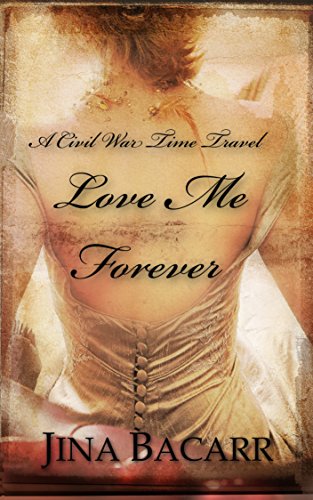Scandal
March 3, 2023 by Janet Elizabeth Lynn and Will Zeilinger in category Book Research, Partners in Crime by Janet Elizabeth Lynn & Will Zeilinger tagged as Hollywood, Scandals, Twilight Zone, Vic Morrow
Safety Working Conditions in the Hollywood Film industry
The civil and criminal actions lawsuit that came after the accident, during the filming of Twilight Zone, was the result of negligence. It was scandalous as the film’s director, John Landis, was charged and tried for manslaughter, along with other members of the film crew. They were eventually acquitted in terms of criminal liability, but civil penalties were assessed. Landis continued his career with little negative impact, but he found several of his long-term friendships with other filmmakers ended as a result of his “condescending attitude” towards the accident.
Millions of dollars were awarded to the families of the victims, mostly paid by insurance companies. Landis deflected the blame for the accident, claiming that the cause of the accident had been in part a special effects fireball detonated by error.
The television series The Twilight Zone was a popular weekly program from 1959 to 1964, the brainchild of writer and director Rod Serling. Its popularity resulted in a demand for reruns for years, and eventually was adapted as a full-length motion picture.
During the filming of the motion picture verson, an accident involving a helicopter killed actor Vic Morrow and two child actors, with multiple injuries to the helicopter crew and film personnel onboard. Morrow and one of the children were decapitated by the helicopter’s rotor; the other child was crushed. The accident brought to light unsafe working safety, particularly for children on film sets, and years of litigation which kept the story on the front pages for a decade.



On July 23, 1982, Morrow, 53, and two child actors, seven-year-old Myca Dinh Le and six-year-old Renee Shin-Yi Chen, were filming on location in California, in an area that was known as Indian Dunes, near Santa Clarita. They were performing in a scene for the Vietnam sequence, in which their characters attempt to escape from a deserted Vietnamese village from a pursuing U.S. army helicopter. The helicopter was hovering at approximately 24 feet above them when the heat from special effect pyrotechnic explosions delaminated the rotor blades (the blade material fractures into layers) causing the helicopter to plummet and crash on top of them, killing all three instantly.
Special-effects explosions on the set caused the pilot of the low-flying craft to lose control and crash into the three victims. The accident took place on the film’s last scheduled day of shooting.
Co-director John Landis and four other men working on the film, including the special-effects coordinator and the helicopter pilot, were charged with involuntary manslaughter. It was the first time a film director faced criminal charges for events that occurred while making a movie. During the trial, the defense maintained the crash was an accident that could not have been predicted while the prosecution claimed Landis and his crew had been reckless and violated laws regarding child actors, including regulations about their working conditions and hours. The trial lasted ten-months with the jury acquitted all five defendants in 1987. The families of the three victims filed lawsuits against Landis, Warner Brothers, and Twilight Zone co-director and producer Steven Spielberg who settled for undisclosed amounts. Twilight Zone: The Movie was released in the summer of 1983. The film received mixed reviews.
Click here for the news report of the accident.
Janet and Will’s Skylar Drake Mystery Series
Twilight Zone Day, Time Travel, and Me by Jina Bacarr
May 11, 2016 by Jina Bacarr in category Jina’s Book Chat tagged as Civil War, Confederate, Confessions of a Podcast Goddess, history, medical drama, medicine, rebel, Rod Serling, romance, time travel, Twilight Zone, UnionTwilight Zone.
Did you hear the eerie music when you read the title?
Two of my favorite TZ episodes dealt with time travel.
Civil War.
And medicine.
Cliff Robertson in “A Hundred Years Over the Rim” (a father time travels to the future to save his ill son with modern medicine) and Kevin McCarthy in “Long Live Walter Jameson.” (check out an interesting filming note on this one). A professor knows history better than he should because “he was there.”
When I set out to write my Civil War romance, LOVE ME FOREVER, these two TZ episodes crept into my story line in a fun and interesting way: my time traveling heroine is a part time EMT and history teacher; she helps the Union Army physician hero in his fight against “germs” and how to combat disease back in 1862.
And yes, she knows exactly when the battles take place and does her best to save lives. But can she change history? If she does, will she lose the man she loves?

How do TV shows affect your writing?
Do shows we loved as kids have an even more powerful effect on our writing?
I think so.
LOVE ME FOREVER is proof of that.
What TV shows have affected your writing?
I’d love to hear your thoughts!
Till next time…
Jina
Civil War time traveler, belle…and spy: Love Me Forever from Jina Bacarr on Vimeo.
She was an imposter – a time traveler back to the Civil War in 1862 from Jina Bacarr on Vimeo.
jinabacarr.com
jinabacarr.wordpress.com
twitter.com/jinabacarr
facebook.com/JinaBacarr.author
pinterest.com.jbacarr
Affiliate Links
A Slice of Orange is an affiliate with some of the booksellers listed on this website, including Barnes & Nobel, Books A Million, iBooks, Kobo, and Smashwords. This means A Slice of Orange may earn a small advertising fee from sales made through the links used on this website. There are reminders of these affiliate links on the pages for individual books.
Search A Slice of Orange
Find a Column
Archives
Featured Books
RESCUED BY A RANCHER
What Happens When A Texas Sweetheart Is Born With A Silver Spoon? She Stirs Up Trouble In Hope Valley!
More info →IN THE SHADOW OF THE VOLCANO
One Ex-Intelligence Official's Journey through Slums, Prisons, and Leper Colonies to the Heart of Latin America
More info →Newsletter
Contributing Authors
Search A Slice of Orange
Find a Column
Archives
Authors in the Bookstore
- A. E. Decker
- A. J. Scudiere
- A.J. Sidransky
- Abby Collette
- Alanna Lucus
- Albert Marrin
- Alice Duncan
- Alina K. Field
- Alison Green Myers
- Andi Lawrencovna
- Andrew C Raiford
- Angela Pryce
- Aviva Vaughn
- Barbara Ankrum
- Bethlehem Writers Group, LLC
- Carol L. Wright
- Celeste Barclay
- Christina Alexandra
- Christopher D. Ochs
- Claire Davon
- Claire Naden
- Courtnee Turner Hoyle
- Courtney Annicchiarico
- D. Lieber
- Daniel V. Meier Jr.
- Debra Dixon
- Debra H. Goldstein
- Debra Holland
- Dee Ann Palmer
- Denise M. Colby
- Diane Benefiel
- Diane Sismour
- Dianna Sinovic
- DT Krippene
- E.B. Dawson
- Emilie Dallaire
- Emily Brightwell
- Emily PW Murphy
- Fae Rowen
- Faith L. Justice
- Frances Amati
- Geralyn Corcillo
- Glynnis Campbell
- Greg Jolley
- H. O. Charles
- Jaclyn Roché
- Jacqueline Diamond
- Janet Lynn and Will Zeilinger
- Jaya Mehta
- Jeannine Atkins
- Jeff Baird
- Jenna Barwin
- Jenne Kern
- Jennifer D. Bokal
- Jennifer Lyon
- Jerome W. McFadden
- Jill Piscitello
- Jina Bacarr
- Jo A. Hiestand
- Jodi Bogert
- Jolina Petersheim
- Jonathan Maberry
- Joy Allyson
- Judy Duarte
- Justin Murphy
- Justine Davis
- Kat Martin
- Kidd Wadsworth
- Kitty Bucholtz
- Kristy Tate
- Larry Deibert
- Larry Hamilton
- Laura Drake
- Laurie Stevens
- Leslie Knowles
- Li-Ying Lundquist
- Linda Carroll-Bradd
- Linda Lappin
- Linda McLaughlin
- Linda O. Johnston
- Lisa Preston
- Lolo Paige
- Loran Holt
- Lynette M. Burrows
- Lyssa Kay Adams
- Madeline Ash
- Margarita Engle
- Marguerite Quantaine
- Marianne H. Donley
- Mary Castillo
- Maureen Klovers
- Megan Haskell
- Melanie Waterbury
- Melisa Rivero
- Melissa Chambers
- Melodie Winawer
- Meriam Wilhelm
- Mikel J. Wilson
- Mindy Neff
- Monica McCabe
- Nancy Brashear
- Neetu Malik
- Nikki Prince
- Once Upon Anthologies
- Paula Gail Benson
- Penny Reid
- Peter J Barbour
- Priscilla Oliveras
- R. H. Kohno
- Rachel Hailey
- Ralph Hieb
- Ramcy Diek
- Ransom Stephens
- Rebecca Forster
- Renae Wrich
- Roxy Matthews
- Ryder Hunte Clancy
- Sally Paradysz
- Sheila Colón-Bagley
- Simone de Muñoz
- Sophie Barnes
- Susan Kaye Quinn
- Susan Lynn Meyer
- Susan Squires
- T. D. Fox
- Tara C. Allred
- Tara Lain
- Tari Lynn Jewett
- Terri Osburn
- Tracy Reed
- Vera Jane Cook
- Vicki Crum
- Writing Something Romantic
Affiliate Links
A Slice of Orange is an affiliate with some of the booksellers listed on this website, including Barnes & Nobel, Books A Million, iBooks, Kobo, and Smashwords. This means A Slice of Orange may earn a small advertising fee from sales made through the links used on this website. There are reminders of these affiliate links on the pages for individual books.























































